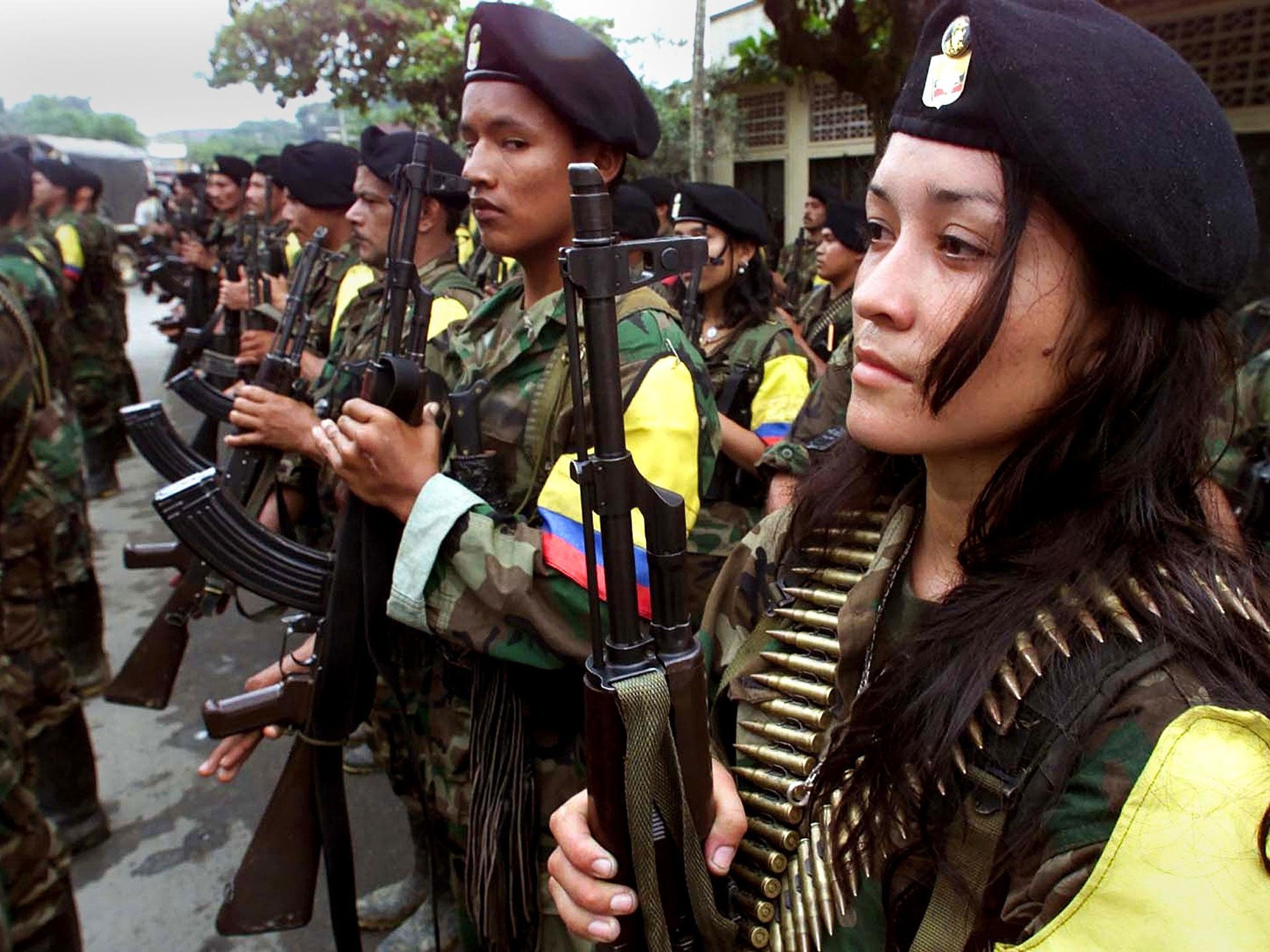Colombia's 50 year-war: An end in sight?
Although there has been no cease fire and the violence continues, there are grounds for cautious optimism as peace talks with rebel group FARC resume in Cuba

Slowly and cautiously, glimmers of hope are emerging that an end may finally be in sight to the armed conflict in Colombia, with the present talks the furthest the Government and main insurgency movement FARC have ever come in the search for peace.
Although there has been no cease fire and the violence continues, the fact that both the main adversaries continue to meet face to face is itself an achievement.
Any formal cessation of hostilities, however, is highly unlikely to put an immediate end to the widespread and systematic human rights violations that remain a fact of life for Colombians, especially the rural population.
At the heart of the conflict is land. Five decades of fighting have left 5.7 million people displaced, the highest number in the world. Those who fled left behind six million hectares of land, much of which is now held by armed groups and their allies, or has been bought by big business concerns.
Efforts to return it to its original owners, as is already being seen in some areas, is likely to meet entrenched resistance, including recourse to the courts, and on occasion, recourse to violence. At present, paramilitaries continue to threaten and in some cases kill, those who threaten their interests.
Members of Christian Aid´s partner, the human rights organisation Inter-Church Commission for Justice and Peace, for example, receive frequent threats from paramilitaries, as do people in the communities in which they work.
Christian Aid hears similar reports from other partners and communities virtually every week.
Nonetheless, the peace talks some months ago agreed the first item on the agenda - the “new Colombian countryside”.
With rural poverty one of the root causes of the conflict, initial agreement was reached that there would be better access to land and services such as health, education and housing, as well as access to credit.
All very promising, but implementation, of course, hinges on the rest of the agenda being agreed. It also begs the question of whether, after ignoring rural needs for so many years, the government really has the political will to change its priorities.
Recent protests that partially paralysed the country show how urgently rural people want reform. The government has made many promises, with the President even saying he is committed to betraying his class, but these have not translated into real change.
Should a peace deal finally be agreed, then this question of empty promises will be key. Civil society will have to engage determinedly to ensure that any agreement is transformed into public policies that really benefit rural Colombians.
The present item on the agenda being discussed is political participation, a subject almost as vexed as land with the poor and vulnerable excluded from a political system dominated by a traditional elite.
The fact that the current President, Juan Manuel Santos Calderón (Minister of Defence under the Uribe administration), is likely to face his cousin, Francisco Santos Calderón (Vice-President under the Uribe administration), as his main opponent during next year´s presidential election, underscores this point. In addition, the mainstream media is dominated by the government and big corporations.
If that issue, too, can be safely navigated, the talks will then move on to an “end of the conflict” – that is, an end to hostilities, disarmament, reintegration and guarantees of safety for ex-members of the FARC.
In addition, the critically important question of victims must be addressed. The conflict has claimed at least 220,000 lives since 1958, with more than four of every five of the dead civilian noncombatants. Among the living, the Colombian government estimates that another 5 million people affected need reparation and assistance.
The question is, how to guarantee their right to justice and reparation? Here the question of redress will also arise – how should perpetrators be punished?
At present in Colombia, discussions largely centre around what should happen to members of FARC, but crimes committed by the security forces must also be addressed for the peace process to be effective.
To help the parties find a framework for this delicate and complicated process, a group of human rights lawyers at Christian Aid partner CCAJAR, have submitted a report with recommendations for transitional justice.
These are just some of the challenges that Colombia must confront. The international community, which has used its efforts to keep the peace talks on track, must, in the event a deal is struck, give what support it can to ensure that the victims of the armed conflict can participate in effective monitoring of the implementation of the agreement.

Join our commenting forum
Join thought-provoking conversations, follow other Independent readers and see their replies